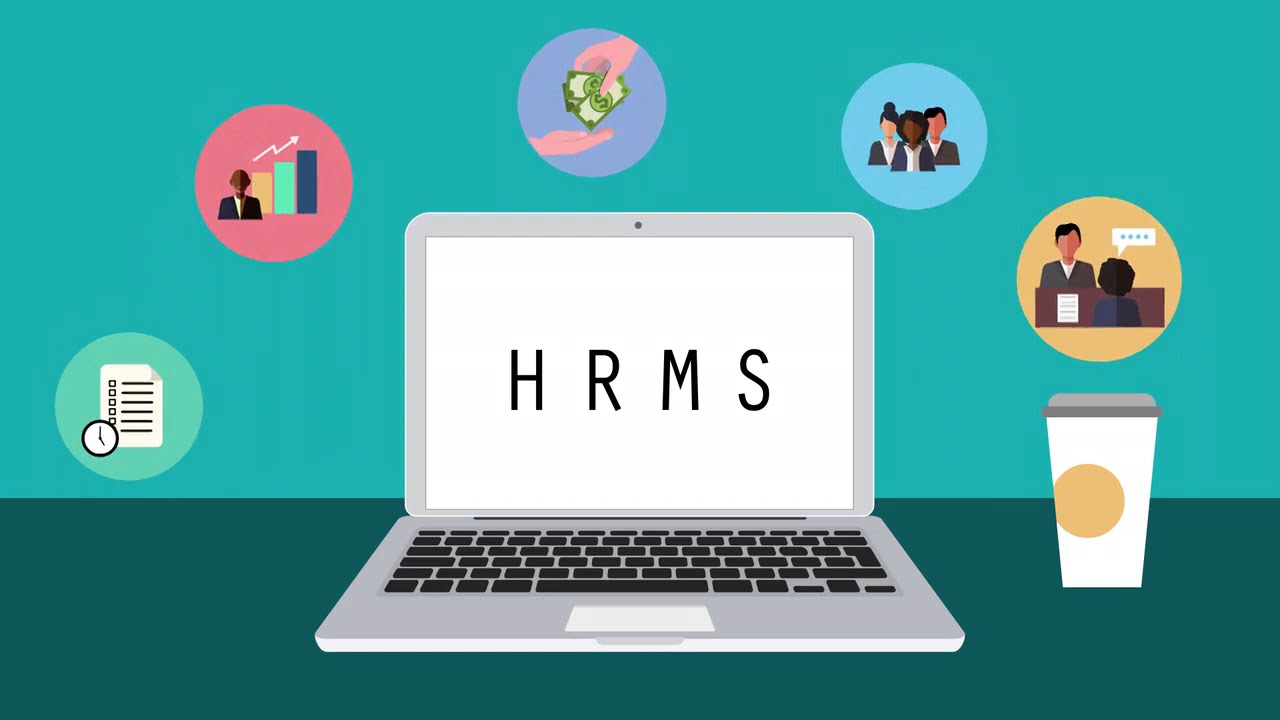The day-to-day operations in companies make the HR leaders and staff the main users of this software applications. This software is focused to manage and control the HR department; however, HR is not the only department that benefited from a Human Resource Management System. Since HR-related costs are usually the highest in a company, an HRMS is crucial for finance teams.
In this article, you will learn why Human Resource Management Systems are so important for smoothing the HR department. In addition, here you will learn appropriate and relevant information about its processes and functions in Dubai and the UAE. That is to say, make sure to learn how your company will benefit from an HRMS. Let’s observe:
HRIS vs HRMS
The term ‘HRIS’ stands for Human Resources Information System; this can be used interchangeably with the acronym ‘HRMS’. This acronym origins from the 1980s when Information Technology Departments were widely known as Management Information System (MIS) departments. Back then HR processes and information became computerized, therefore, the term HRIS was born.
One of the main functions of and HRIS was electronic management and recording of workers records. That is to say, HRIS is the acronym some HR professionals utilize to describe when HR records, became electronic due to the use of software.
Subsequently, technologies used by companies evolved and the systems expanding past to only keeping workers’ records; then HRIS became known as HRMS. In today’s society, both terms are still used simultaneously to refer to the software that automated and record workers information in the HR departments.
History of Human Resources Information System
Back in the decade of the 70s, businesses were looking to automate the management of their workforce, payroll was the main focus to be computerized. But it took was loads of CPUs technology to withhold deductions, track payroll liabilities, print paper checks, and calculate the employee’s earnings. It was with the arrival of the XXI century when the adoption of employee self-service and direct deposits; the whole payroll process became fully electronic.
In the late 1980s, one of the pioneers of a more complete Human Resources Management System was PeopleSoft. It not only offered payroll services but in addition:
- Employee record management.
- Recruiting.
- Time and attendance.
- Benefits administration.
- Compensation.
- Compliance and reporting.
With the internet’s arrival in the late 1990s came the benefits of automation and more HR functions. For instance, some ads were replaced by electronic job boards, this led to new ways to connect between candidates and recruiters. In the 2010s, when cloud systems technology became popular, to these days; HR departments in all-sized businesses can afford Human Resource Management Systems without expensive hardware or IT staff to operate the system.
What is next for this technology?
The decade of 2020s is promising and looks like we are going to see more HRMS innovation. In addition, with predictive analytics and machine learning, the rise of artificial intelligence will assist companies to:
- Match best-fit candidates to positions faster.
- Anticipate future skills requirements.
- Detect workforce trends.
Read More About : Best Manpower Supply & Labour Services in Dubai, the UAE, and across the Middle East
Why is HRMS important?
The HR department expenses like office space, are constantly changing due to the change to a work-from-home model; all businesses must still accurately determine labor costs to keep revenue flows consistent.
Joseph Hadzima, a lecturer at the MIT Sloane School of Management, estimates that base pay in addition to workers’ benefits and taxes, will multiply from 1.3 to 1.4 in the annual salaries. Thus, a worker that earns $50,000 a year may cost more than that, it could increase to $62,000-$69,500 this does not include real state and equipment.
We have an article for you if you want to learn how to make your HR department automated.
Likewise, businesses with limited HR departments may want to roll out self-service proficiencies. HR specialists must not spend time assisting managers with their day-to-day routines and working hours, for instance, or assisting workers with access forms like w-2s.
More, secured self-services and accurate financial data reporting are some of the most important benefits of a modern HRMS.
Functions of an HRMS
When you are in consideration of which HRMS is better for your company, you must consider thinking in terms of functional components. Modern HRMS usually cover 7 areas and the level of focus also varies.
Workforce Functions
- Workforce management: this is a key factor in a company, this function is also known as ‘Core HR’. This function delivers important data which supports analysis, compliance and reporting processes. Therefore, it is the employees’ structure turn into organizational units, such as locations and department; it is where you clarify relationships between employees and managers; and place payroll processes to accounting centres.
- This is where the personal information of the workers is recorded and kept. This function is what allows to offer great employee self-service, it also is where the company improves the HR service, and maximizes reporting and accounting.
- Candidates’ management: it is crucial for businesses where the candidate’s experience is their main focus; from applying to their resume to the interview schedule to making offers, in addition, onboarding. Most importantly, is how the business promotes its internal brand to current employees who may apply for the job or to the outside world.
- Employee engagement: HRMS is the best way to complete a training course, develop a new career path, become a mentor, or gain recognition. However, employees who are engaged in the company usually are efficient, produce higher-quality work, and execute the vision of the company; so, it is important how the workers connect with their colleagues and the leadership.
- Payroll: this is one of the most important functions of a Human Resource Management System. Therefore, this calculates gross and net earnings, withholding individual deductions, and issuing payments easily. Likewise, these payroll solutions allow automating both deposits and taxes. Having a self-service function will allow workers to make handle their elective deductions, tax withholdings, claim copies of income statements, and direct deposits without HR assistance.
However, if you want to keep learning this article will teach you everything about salary certificates.
Procedural Functions
- Optimization: this is the less used function of the HRMS. However, this option is of great value when it comes to sharp economic swings in either direction. In addition, businesses that take a dynamic approach to optimize their workforce are more adaptable to changes, have better employee engagement, and have higher retention of high-skilled individuals.
- Workforce management: with this function, the HR department can develop time structures, time-off policies, overtime rules, and approval chains that improve control, efficiency, and automation. In addition, in this function HR teams track the worker’s development, disciplinary actions, and manager evaluations; in addition, to record attendance, and ensure the organization has a safe work environment.
However, this is function holds the performance management, compensation planning, and incident recording functions. Similarly, in this function is also the workforce performance review process and goal management.
- Contingent workforce management: some business workers are not employed full-time; consultants, contractors, temporary employees and interns provide specific skills and handle spikes in demand for labor. However, a Human Resource Management System does not usually manage these employees since they are not always on the payroll, therefore, although they are not eligible for benefits, they do contribute to the company’s growth. As a result, it is important to track contingent employees and how many are in the company.
Once you clearly understand which functions are important and which suit best for your company; you must make sure to learn about the specific HRMS features.
HRMS Features
HRMS software features vary from provider to provider, in addition, improvising multiple products may limit the system. The HR department, finance, IT, and other collaborators must carefully evaluate which of these features are important to the company:
- Benefits administration: this feature helps the HR department to develop plans, make payments or deposits, and configure their suitability. In addition, this feature offers self-service integration to benefit costs and open registration with the accounting process.
- Employee records centralization: one of the most important features an HRMS offers is a repository where all your workforce records are maintained, updated, and stored. Therefore, this allows lower costs and a better reporting of compliance and preparation for audits.
Learn about the new visa reform made public by the UAE government
- Management learning: human resources management systems also assist the workforce to develop new skills through course administration, testing, certification, and curriculum development. This allows businesses to track required compliance training.
- Analytics and reporting: this system allows companies to complete compliance reporting, develop Key Performance Indicators (KPI) to calculate HR processes and metrics into financial control panels for analysis, decision-making, and planning. Also ensures to deliver all the necessary reports.
- Rewards: variable payments for bonuses, hourly wages, overtime, sales commissions, calculate salaries, hourly wages, and shift differentials while withholding elective and regulatory deductions; this leads to an accurate payment to workers at regular intervals. In addition, in this set are all benefits like mobile phones or retirement funds contributions.
- Talent acquisition: businesses recruiters build career pages on the company’s websites, create job requirements and descriptions, integrate positions with job boards, manage positions and resumes, track applicants through the requirement process, extend job offers and perform background checks; before handing the new hires off to the hiring manager to start the onboarding process.
Benefits of an HRMS System ?
The main focus of an HRMS is having all your employees’ data in a central repository. Therefore, this gives rich information set important to the decision-making process, and lowers compliance risks; in addition, this keeps the workforce engaged and makes the HR professionals more efficient. There are 5 main benefits of an HRMS:
- Deeper insights.
- Spotting early indicators of problems.
- Improved workforce engagement.
- Culture of self-service and process efficiency
- Lower back-end overhead.
- Faster recruiting.
HRMS security
All employees’ information requires a top level of protection not only to complete compliance mandates but to keep a positive culture. However, in all companies, security measures to protect their workforce’s sensitive data are at the top of their priorities. All HRMS users must focus on the next features:
- Role-based access: all HR staff requires different access levels than the rest of the employees. Managers perform tasks different than other employees, others that relate to their own information. The HRMS software should allow companies all the roles they need to manage.
- System segmentation: the system is set so certain information and data are allowed only by certain people. Some businesses have implemented security measures that allow them to provide the HR department with access to little segments of the employees they work with. In addition, executive payrolls are separated into unique entities that helps them protect their information.
Segmentation is good when you are trying to focus the payrolls, in addition, learn the differences between manual vs automated payroll
- Two-step authentication: mobile phones make it easier to enable two-validation technology for an extra level of security.
- Password strength and reset policies: the IT department must request certain passwords complexity and lengths in specified reset periods, maximum as every month, to help prevent unapproved access to HRMS data.
A good approach to HRMS software security is a must for potential investors, entrepreneurs or cybersecurity underwriters.
How to Choose HRMS ?
The HRMS market is a saturated and overwhelming market, some software review websites list approximately 700 providers of HRMS. Assessing them would take a full year. So, the first thing you must do is separate them into three groups:
- Enterprise Resource Planning (ERP): this model provides a steady user experience and a single security model, this added to the low integration costs. Moreover, 95% of businesses report improvements after executing the ERP model.
- Best of breed providers: this model specializes in one to three areas. Therefore, they assist companies with in-depth features with easy user interfaces.
- Service providers: this is a fully outsourced solution, the organization pays the provider to file taxes, administer benefits, send data into accounting, and run payroll. In addition, this model acts like your HR department, thus, requiring fewer HR employees by the company.
How can ConnectHR provide you or your company with an HRMS?
Certainly, now that you are aware of everything regarding the Human Resources Management Systems, the different types, and their benefits. With ConnectHR working with your company, you will reach your personal goals by offering you HR services in Dubai and across the UAE.
Our main focus is to assist your company with the best professional services, these services will take your company’s to a next level of:
- Automation
- Productivity
- Time Management
- Reduction of errors
However, in case you want to improve your HR department, you can request HR consultancy, insurance, or attendance. Likewise, we also have the best professional services including automated payroll systems, WPS, and HR management systems.
We have the best payroll software in the market and we have an article about it.
If you decide to use any of our services, we will work with you side by side to ensure your company’s growth. Moreover, you can easily obtain any of our services for yourself or your company.
Since 1998, we have been working with companies all across the UAE providing them the most efficient business services and solutions.
Would you like to contact ConnectHR to discuss any of our services?
If you have any inquiries, call us on +97143316688 and you will talk to one of our agents who will kindly answer all of your questions.





